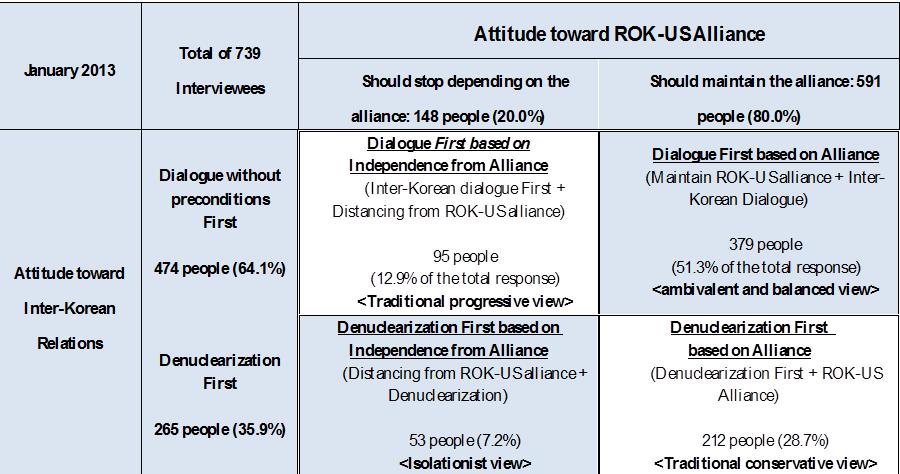Jeong finds that the two views—for engagement and for the alliance—are now trending together. According to the survey conducted by EAI and Hankook Research Company in early January, 62.1% support prioritization of inter-Korean dialogue calling for “promotion of inter-Korean dialogue without linking it to North Korean nuclear issues”, while 33.3% believe denuclearization must be addressed first. With regards to the ROK-US alliance, 76.6% believe maintaining the ROK-US alliance is a plus for South Korea’s security, while only 19.0% support the call for distancing South Korea from the US and pursuing greater self-reliance.
The off-diagonal views are particularly interesting. Among respondents who describe themselves as conservative, the share of those calling for inter-Korean dialogue without preconditions approaches 60%. On the other hand, among the respondents who describe themselves as progressive 67% believe that ROK-US alliance should be maintained. The useful figure below maps the preference space.

This shift is taking place against an even more interesting backdrop of nonchalance toward the North Korean threat. Jeong throws some cold water on the “security numbness” argument by showing that the South Korean public was in fact concerned by the times of troubles in March and April. However, as my colleague Marc Noland shows in a new post based on a TNS poll, their hearts were not in it. That poll also shows a narrow majority supporting dialogue and much larger majorities not taking the North Korean threat seriously.
This pattern drives true conservatives crazy, but suggests the public underpinning for the middle ground that Park Geun Hye is trying to tread following the scant returns from the Lee Myung Bak approach. In our view, that approach looks a lot more like Kim Dae Jung’s version of the sunshine policy than is often thought; he too called for dialogue in the context of a strong security stance. That fact was often overlooked during the drift of the Roh Moo Hyun years.